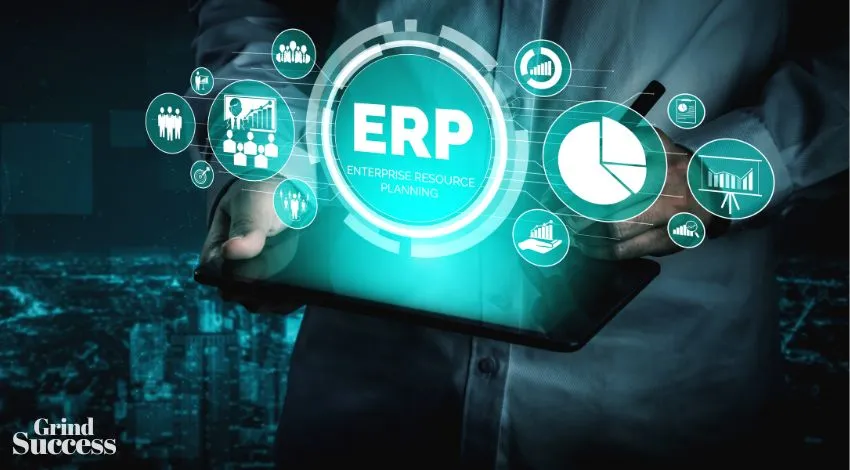6 Reasons Why ERP Software Is A Must-Have For Small Businesses
ERP software is like a superpower for small businesses: it can help you do more work in less time and with fewer resources. But just like any superhero, the power of ERP comes from harnessing its capabilities correctly.
Unsurprisingly, so many entrepreneurs need to turn to ERP solutions for their business needs. From streamlining operations and reducing costs to improving customer service and boosting efficiency, an effective Enterprise Resource Planning (ERP) system is essential for small businesses today.

In this article, we’ll look at six key advantages of using ERP software as part of your strategy.
6 Reasons to Utilize ERP Software for a Small Business
1. Automation of Business Processes
One of the most significant advantages of an ERP system is its ability to streamline and automate a wide range of business processes.
ERP software can help you reduce redundant, manual tasks and automate daily operations such as order processing, inventory management, financial reporting, etc. As a result, it can save you time and effort while increasing accuracy and efficiency.
Besides, ERP systems are designed to be highly configurable, allowing you to customize them to meet your needs. They can also be powerful enough to accommodate multiple business functions, from sales and marketing to customer service and inventory management.
Finally, enterprise software can help you eliminate errors and increase visibility into the overall performance of your business.
2. Improved Data Analysis and Insights
ERP software provides powerful data analytics capabilities to help your business gain insights into customer behavior and preferences.
For example, you’ll be able to quickly identify trends in sales, inventory levels, and customer satisfaction. You can then use this data to make informed decisions about your business strategy and operations.
Besides, ERP systems can generate detailed reports and analytics that provide deeper insights into your processes’ performance. This data can help you refine and optimize your operations to maximize efficiency and profitability. They can also take a crucial role in driving enterprise-wide data security.
Finally, reports generated by ERP software enable you to identify areas for improvement and track performance over time. As a result, it will significantly assist your business in the long run.
3. Enhanced Customer Service
With this kind of software, you can easily track customer orders and provide timely responses and attention to customer queries. It helps build better customer relationships, resulting in improved customer satisfaction levels.
In addition, you can use ERP software to generate personalized offers for customers, providing them with targeted discounts and promotions. As a result, it helps build customer loyalty and boost sales.
ERP systems can, among all else, provide powerful customer analytics. They let you track customer behaviors and preferences to craft more personalized offers and promotions.
What’s more, enterprise resource planning software can also quickly respond to customer complaints and inquiries, allowing you to maintain positive relationships with your customers.
4. Improved Collaboration
ERP systems provide enterprise-wide collaboration capabilities, enabling employees to access and share data in real-time. They eliminate the need for manual data sharing, saving time and effort.
Besides, enterprise resource planning software can be used to create a single source of truth for enterprise-wide data. It ensures that everyone within the organization works with the same information, reducing confusion and miscommunication.
Such systems also enable remote access, so employees can securely access data even when they’re not in the office. For example, the software can allow sales reps to access customer data in the field.
5. Cost Savings
ERP software can help you reduce costs by eliminating manual and redundant tasks, streamlining operations, and improving accuracy. You can also save money on enterprise-wide collaboration tools like email, document sharing, and project management software.
By implementing enterprise resource planning software, you can reduce the IT staff you need since ERP software can automate and manage business functions. It can lead to significant cost savings in the long run.
Besides, the software can help you reduce operational costs by streamlining enterprise processes. For example, ERP systems can automate mundane tasks like invoicing and help you reduce the time needed to complete procedures. It can result in reduced staffing costs, faster completion of jobs, and improved business efficiency.
6. Improved Decision-Making
ERP systems provide enterprise-wide visibility into data, helping managers make informed decisions quickly. It will significantly improve performance, as enterprise decisions are based on accurate data.
Plus, enterprise resource planning software can help businesses identify opportunities and reduce risk. By analyzing data, companies can pinpoint trends, market opportunities, and areas for improvement. This will help them better understand the enterprise landscape and make strategic decisions for future growth.
Finally, ERP software can also help businesses create predictive models, allowing them to forecast performance and make better decisions. This can lead to better planning and long-term success.
Final Words
As you can see, ERP software is essential for businesses looking to improve enterprise efficiency and performance. By implementing it, companies can streamline processes, reduce costs, and improve their decision-making. Ultimately, the software can help businesses stay ahead of the competition and thrive in today’s digital enterprise.
So, if you’re looking for a solution to take your business performance to the next level, enterprise resource planning software is a great option. It’s cost-effective, easy to use, and can help introduce several convenient benefits.
This is a Contributor Post. Opinions expressed here are opinions of the Contributor. Grindsuccess does not endorse or review brands mentioned; does not and cannot investigate relationships with brands, products, images used and people mentioned, and is up to the Contributor to disclose.
